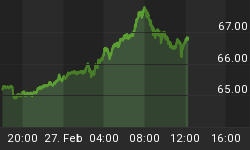Online shopping juggernaut, Amazon Inc. (NASDAQ:AMZN), is as daring as they come, but knows a lost cause when it sees one. After nearly two decades squaring it off with the likes of Alibaba Group (NYSE:BABA), Tencent Holdings (OTCPK:TCEHY) and JD.com (NASDAQ:JD) in the mercurial Chinese market, in 2019, Amazon finally threw in the towel. The e-commerce company shut down its Chinese online marketplace in July 2019, in effect meaning that Amazon.cn is no longer open to third-party sellers, leaving the space to China’s online heavyweights.
Well, exiting such a massive market was always going to come with repercussions, and Amazon is now paying the price.
After remaining the most dominant and recognizable ecommerce brand for two decades, Amazon appears to be losing its mojo.
According to new data from Apptopia, Amazon Shopping could only manage to snag fourth place among the most downloaded shopping apps in 2021, ceding its position to--you guessed right--Chinese and Asian ecommerce brands.
Losing to China
According to Apptopia, Singapore-based Shopee was the most downloaded shopping app last year after recording 203M downloads. Shopee mainly serves Southeast Asia and Latin America customers in Indonesia, Thailand, Philippines, Singapore, Malaysia, India, Taiwan, Spain, France, Mexico, Colombia, and Chile among other countries.
China’s SHEIN, a leader in “fast fashion,” was the second most downloaded shopping app with 190M downloads while India’s Meesho, a specialist in social e-commerce for several consumer categories including fashion and home products, came in third with 153M downloads.
Amazon could only manage to snag 148M downloads, good for fourth place, a worrying trend after topping the worldwide ranking last year.
Luckily, Amazon has maintained its stranglehold in its U.S.home turf, recording 40M downloads to second-placed SHEIN’s 32M.
Tough Market
Amazon was a bit vague regarding the reason(s) why it decided to hang its Chinese ecommerce boots, telling the Verge: “Over the past few years, we have been evolving our China online retail business to increasingly emphasize cross-border sales, and in return we’ve seen very strong response from Chinese customers. Their demand for high-quality, authentic goods from around the world continues to grow rapidly, and given our global presence, Amazon is well-positioned to serve them.”
The carefully worded statement appeared to imply that the Chinese were not buying a ton of local stuff, preferring instead to ‘‘buy high quality authentic goods from overseas”.
In the final analysis though, Amazon was probably doomed to join the scores of Western retailers such as Walmart Inc. (NYSE:WMT), Best Buy(NYSE:BBY), Home Depot (NYSE:HD) Tesco (TSCO:LN) and others that have failed to crack the Middle Kingdom. Despite being one of the most admired online retailers, Amazon only managed to take a paltry one percent market share of China’s domestic ecommerce market compared to 75 percent for Alibaba and JD, proving just how tough the going was for the American icon.
There are several other plausible reasons why Amazon finally decided to call it quits in China.
First off, Chinese consumers have become spoiled by local marketplaces such as Alibaba’s Tmall and Taobao which are able to offer a seamless user experience that Amazon cannot easily match. This includes mobile shopping apps and perks such as overnight free deliveries in the same province. Amazon, on the other hand, requires orders to hit minimums of 59 yuan to 200 yuan ($8.79 to $29.81) whereas Chinese players frequently offer free shipping with no minimums orders.
Finally, many luxury brands prefer not doing business with Amazon due to the company’s stricter standards--which, unfortunately, is not something you can say about its Chinese rivals.
Alibaba and other Chinese marketplaces have often been accused of allowing too many counterfeit products on their platforms. China’s third-party marketplace has become so cutthroat that businesses frequently engage in unethical practices such as manipulating product listings so as to rank higher on Amazon. This includes using dirty tactics such as placing fake reviews on competitors’ sites, paying bribes and posting fake sales—all of which violate Amazon rules.
Constantly policing Amazon.cn might not be worth the trouble for Amazon considering the diminutive returns and the risk of tarnishing its reputation.
But as Amazon has correctly observed, cross-border trade is one area where the company shines and can gain a nice competitive advantage. The company has already garnered 10% market share of China’s cross-border ecommerce which gives it a nice launching pad.
Amazon is widely known to be a logistical maestro, having honed its skills in its own highly demanding backyard. Coupled with its cleaner image, Amazon can become a logistics hub for Chinese manufacturers and retailers around the world to get goods faster and more efficiently to the Chinese consumer.
In the final analysis, competition provides the best market discipline and mastering China might eventually help Amazon crack other Asian markets.
TikTok Overtakes Instagram
It’s interesting for readers to note that Amazon is not the only Big Tech behemoth being upstaged by China and Asia, with Facebook Meta Platforms (NASDAQ:FB) facing a similar fate.
Meta’s Instagram has lost pole position among the world’s most downloaded apps in all categories to Beijing-based ByteDance, owner of TikTok, with the former garnering 545M downloads globally to TikTok’s 656M. Also known in China as Douyin, TikTok is a video-focused social networking service that was founded by the Chinese billionaire entrepreneur, Zhang Yiming in 2016.
Interestingly, TikTok has emerged as the most popular app even in the U.S. market after recording 94M downloads compared to Instagram’s 64M.
















